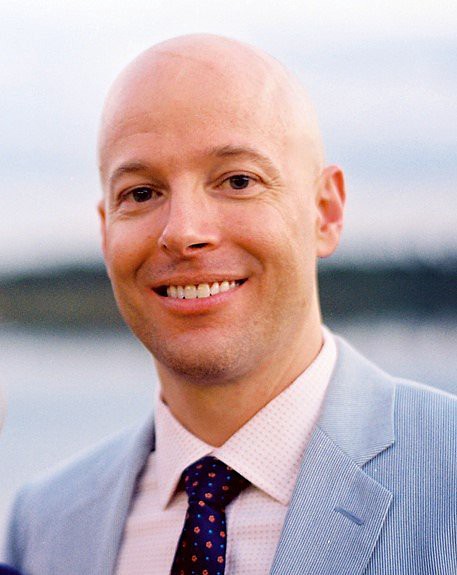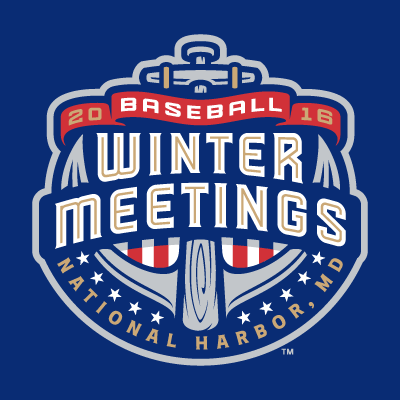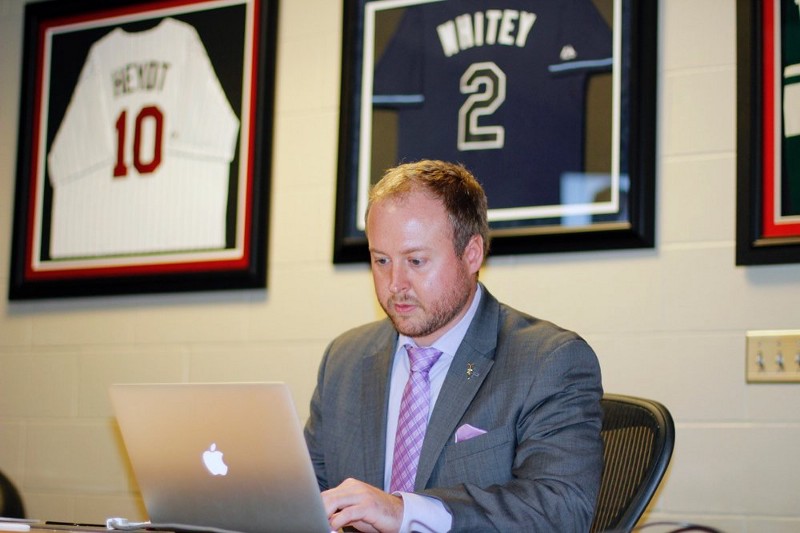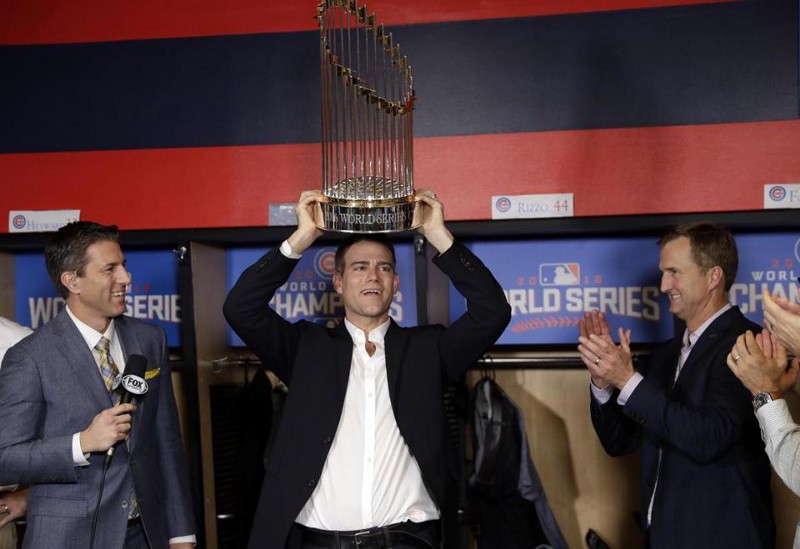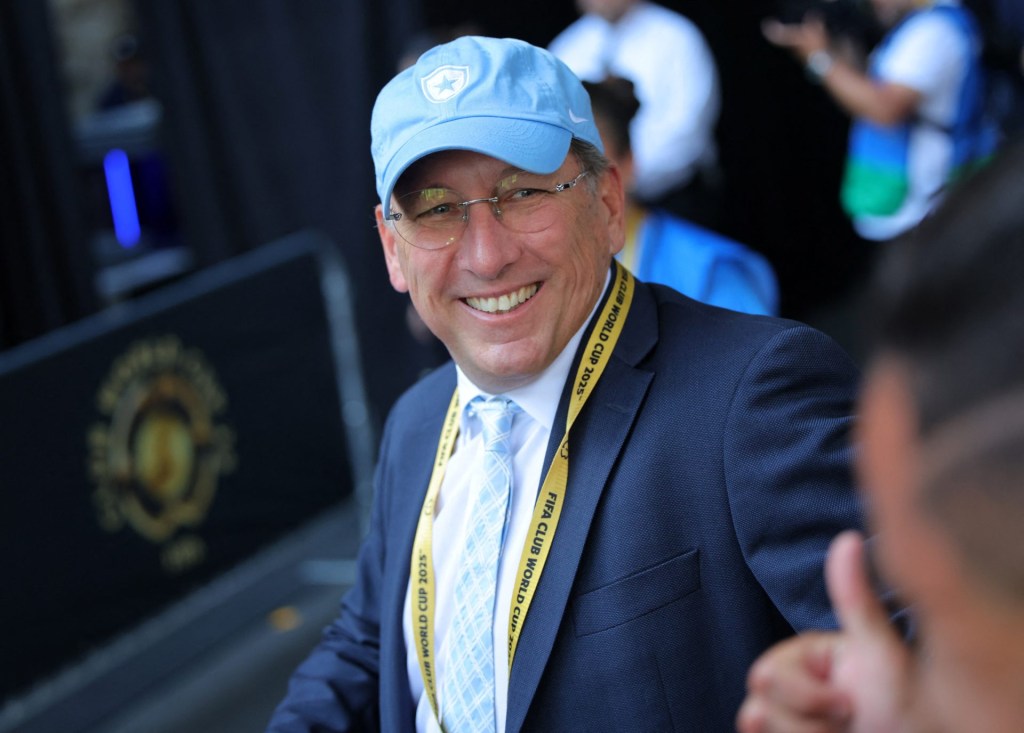By: Austin Weaver, @AustinTWeaver

Front Office Sports is excited about the opportunity to discuss the sports industry with Dan Matheson. Mr. Matheson is currently a lecturer in the Sport and Recreation Management program in the College of Liberal Arts and Sciences at the University of Iowa. Mr. Matheson graduated from Iowa State University with a degree in sport management, and he also holds a law degree from the University of Minnesota Law School. Prior to arriving at the University of Iowa, Mr. Matheson worked for both the NCAA and New York Yankees. Within the NCAA, he worked as both the Assistant Director of Enforcement and eventually as the Associate Director of Enforcement. Matheson joined the NCAA after working for the New York Yankees. In his time with the Yankees, Matheson started as a Player Development and Scouting Administrator before taking over as the Director of Baseball Operations.
On getting his start as a Media Relations intern with the Chicago Cubs.
The role in Media Relations was not the role I anticipated for myself, but that was where the majority of the internship positions were available. I had actually applied for both the Media Relations position and a position in Marketing. I knew I wanted to work in Major League Baseball, that was my primary goal.
My experience with the [Chicago] Cubs was outstanding. What it really did for me was gave me exposure to a Major League Baseball front office. It gave me the opportunity to meet a variety of people in different parts of the business, and to build relationships. One of the mentors I connected with during that year was the General Counsel at the time. At the time of the internship, I was still in my junior year and was trying to decide if I wanted to go to graduate school or not.
When I returned to campus, I sought advice from the General Counsel of the Cubs about whether or not I should go to law school or start working on an MBA. He was instrumental at helping me recognize the value of law school regardless of if I wanted to practice traditional law. He indicated that the training I would receive in law school would be extremely valuable and transferrable to a variety of fields. I wanted to end up in sports and he helped convince me that I could do law school and still end up in sports. To me the real value of the internship was the opportunity to explore.
I emphasize this to my students, don’t worry about what your title is or what department you are working in, get involved and start exploring. As a student you are there to gain experience and to find people to learn from. Talk to these mentors about their career path. Once you do that, you can start to adapt and decide which path you want to take.
On working for the New York Yankees.
Working for the Yankees was tremendous, one of the best experiences of my life. We won the World Series four times in the six years I was working there. Mr. George Steinbrenner was very involved and was an influential person in my life. There is nothing like winning the world championship in whatever sport, it is the pinnacle of the sports industry, and it’s why people go to work on the team side of the industry. To have the opportunity to win a world championship in New York City was an incredible experience. One of the great things about the Yankees and Mr. Steinbrenner was his desire to win all the time.
When you work in baseball operations, you want an owner that is committed to winning. In our organizational meetings, it was about what it would take to get the best talent available so that we have a chance to win a championship every single season. It is not that way at every organization because ownership groups may or may not have to ability or desire to spend the maximum in order to stock their team with the best talent. Mr. Steinbrenner was always willing to spend to improve the team.
We had the ability to consider every free agent on the market, and we had the chance to consider trading for any player under any sort of contract. That was the sort of freedom that you look for when working in baseball operations.
Advice to students interested in team operations.
If people want to head towards director of operations type positions within a sports organization, they need to recognize that it is a significant amount of administration type work. Looking through contracts, making budgets and other details that support the experts in the office whose job it is to make player acquisitions and development decisions. I recognized that my most significant role with the Yankees was to take the administration of the player development side of the business off of the plate as much as possible of my Vice-President and others who had decades of experience on the field and in evaluating baseball talent.
While I was in that position I did have the opportunity to learn some of those things, but that wasn’t what I was paid to do. I got to spend a lot of time around players in our development system and attend minor league games with our and Gulf Coast League affiliates and look at scouting reports and sit in on scouting meeting to learn, but one mistake that people make that want to work in that end of the business is thinking that the ticket to those jobs is promoting your knowledge of baseball or whatever sport it is.
When I was in the position I was managing the facility operations of our player development and scouting facility in Tampa. I was managing all the contracts of our players under minor league contracts, around 140 people, as well as managing the signing bonus payments and the budget for that entire division of the organization. A lot of organization and administration is involved and that is what people should be focused on.
Nowadays, the ability to manage data, or the Moneyball model, and the ability to work with it is necessary. Being able to work with that data and present it in a way that baseball evaluators want. There are now a lot of jobs in baseball operations that are related to data management and harvesting information and trends from enormous amounts of data.
On why he transitioned from the Yankees to the NCAA.
I was in my early 30’s and was starting to search for a different career path that would offer a better balance of work and my life outside of work. When I was with the Yankees in my late 20’s and early 30’s, that was exactly where I wanted to be and what I wanted to be doing at that point in my life. It was what I had envisioned for myself when I was in law school and was exactly what I wanted when I go out of school. I never thought I would leave.
This is something I try to make a point of to my students; you don’t know how you will evolve as a person. That is why a strong educational foundation is important, it allows you to adapt, as you grow older. When I worked for the Yankees, doing exactly what I wanted, my life was very unbalanced. It was work all the time. I spent 350–355 days a year in the office working. Long days, no weekends, no holidays, it was work all the time.
That was understood, that’s how the business operates, particularly the baseball end of things. No offseason, very little downtime. There were other areas of interest in my life, outside of working all the time that I wanted to focus on for my own personal growth and development. The NCAA offered me an opportunity to find a better work-life balance and that was important for me at that time. The role I had with the NCAA valued my legal training and once again my law school education paid off and made me a competitive candidate.
On his transition from the NCAA to teaching.
During my last few years working with the NCAA, I started mentoring law students at the University of Iowa law school, who had an interest in sports related careers. I started guest teaching periodically in sports-business related classes on campus, and through those experiences I started to recognize that I really enjoyed the interaction with young people who were in the same position I was twenty years earlier. I recognized that I fortunately had the opportunity to have success early in my career in breaking into jobs and areas of the industry that a lot of people aspire to.
So I have the opportunity to bring some of my experiences back to young people that crave my knowledge. I have the right experience I think that students can learn from and I enjoyed it very much and started to realize at this stage in my career I get more enjoyment and personal satisfaction out of seeing a young person achieve a victory in their job search or internship search. I love working with students at the University of Iowa to help them navigate this challenging business and figure it out and make their dreams a reality. It is just incredibly satisfying at this stage in my career.
On how a legal education set a path for success.
I became very interested after my internship in working in baseball operations for a baseball team. Initially, I viewed the legal education as helping to set me apart, and that I could add value to a front office by having a specialized education in contracts, and an understanding of contracts and legal training that few others are able to combine that want to work in a baseball operations position.
I didn’t play baseball beyond high school so I couldn’t approach an MLB organization with the idea that I could add anything to their evaluation of baseball talent. I had to focus on other ways I could add value to an MLB front office. A legal education was important as it identified me as someone who had higher-level legal education that could be helpful in writing contract language and managing contracts and other aspects of an MLB front office.
Moreover, my legal education enhanced my analytical skills, my attention to detail, my critical reading abilities, and basic tools that I was able to add to my tool kit that gave me the ability to handle projects in the front office that wouldn’t be assigned to other people because they hadn’t gone through that legal education. Law school teaches you how to think like a lawyer. It teaches you how to see both sides of an issue, and to advocate for both sides. You learn to formulate a strong defense on both sides of an issue and how to be very detail-oriented when reviewing complicated language and agreements.
Advice to students interested in pursuing a law degree and a career in sports.
One thing that I advise students in my program that are considering law school is that it is a significant commitment; it’s three full time years, four part time years. During law school there are many points in time you are going to feel pretty far removed from the sports world because there are all kinds of traditional legal courses that have to be taken that have nothing to do with sports.
So you have to feel comfortable with that. For most people law school is also a significant investment of money as well as time. I encourage them to think about what they want to use law school for rather than going to help them figure out what they want to do.
If I hadn’t had a fairly defined goal in mind when I went to law school I might have lost motivation and interest along the way because I had no interest in practicing traditional law. If I didn’t know what that end goal was, I might have become frustrated because law school is set up to cater to people that are focused on practicing traditional law. Most of the time as a law student I felt like I was out on an island.
There were maybe two-three other people in my class of around 160 people that were also interested in pursuing sports related careers. You have to be confident in the direction you are going and find your own internships and opportunities outside of what the law school caters to in regards to on-campus career fairs.
If you could go back and tell 22-year-old Dan something about the sports industry, what would it be?
Be adaptable; be prepared to do a number of different things. Have an open mind to a variety of different opportunities in the business. When I started out, like many young people, I thought I had identified exactly what I wanted to do and I was doing it. I was doing baseball operations with the Yankees and I thought I’d be there for the next thirty years.
Your priorities in life might change and there are so many awesome experiences that are possible in this industry. Having an open mind and the ability to maneuver in different directions might give you the opportunity to find an incredibly satisfying career in an area you didn’t even know existed when you were 22. Learn as many skills as possible and always keep an open mind to what is possible.
Advice to students on the sports industry.
Some things I preach to my students all the time when they are going into an internship:
1. Arrive Early
2. Stay Late
3. Always exceed expectations.
4. Pay excruciating attention to detail
5. Take on every assignment, no matter how menial, with a positive and cheerful attitude.
Those principles tend to lead to glowing letters of recommendation and supervisors that want to call their colleagues in the industry and say I’ve got this young person working for me and they are a superstar, I wish I had a position for them but you should consider hiring them. It leads to organizations finding room for you.
You might not realize it but your supervisors are talking about you behind your back when you are not there. They are critiquing if you have what it takes to last in the business. They may get along with you and may be fine with you face-to-face in the work environment, but when you are not around they may think of you as a nice person who just isn’t going to cut it. A lot of students don’t take it to heart and really apply it every single day when they are out there in the field.
They may leave that internship with something on their resume which is fine, but they may not get everything that they possibly could out of that opportunity and that’s the saddest thing to me is when a student has an unbelievable experience and they don’t open all the doors they could have.
We would like to thank Dan for his time and insight and we wish him the best in his future endeavors!
You can follow him on Twitter here or connect with him on LinkedIn here!
